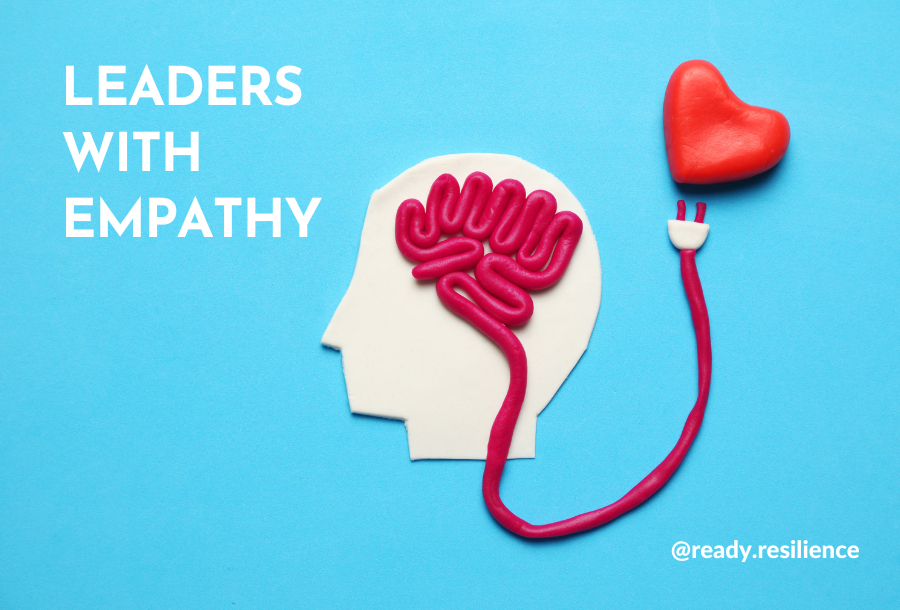
GUEST POST BY Wendy Jenkins OAM, READY RESILIENCE
Ready Resilience helps organisations thrive during times of change and challenge, using practical neuroscience-based resilience tools that have been proven to offer in-the-moment solutions and long-lasting results.
Unleashing the Power of Neuroleadership: Leaders with Empathy
Empathy, a cornerstone of effective neuroleadership, is intricately linked with the brain’s association cortices.
These regions, distributed throughout the brain’s outer layer (the cortex), are responsible for higher-order cognitive functions such as reasoning, problem- solving, and understanding others’ perspectives.
Imagine a leader actively listening to a team member’s concerns, putting themselves in their shoes, and responding with compassion. In this scenario, the association cortices are hard at work, synthesizing the verbal and nonverbal cues to understand the employee’s perspective and emotional state.
This process not only builds rapport but also strengthens neural pathways associated with empathy, making the leader more attuned to their team’s needs and emotions over time, and enhancing their ability to connect with and support their teams on a deeper level.
Numerous studies have shown that empathetic leadership correlates with higher levels of employee engagement, job satisfaction, and overall organisational performance.
When leaders foster a culture of empathy, team members feel valued, understood, and more motivated to contribute their best work.
Practical strategies for cultivating empathy include:
Active Listening: Leaders should set aside time to listen attentively to their team members without judgment or interruption, focusing on understanding their perspectives and validating their experiences.
Leading by Example: Demonstrating empathy in interactions with others sets a powerful precedent. Leaders who model empathetic behaviour encourage their team members to do the same, fostering a culture of empathy throughout the organisation.
Seeking Feedback: Regularly soliciting feedback from team members about their experiences and how you as a leader can better support them is essential. This feedback loop enables leaders to adjust their approach and further develop their empathetic skills.
Investing in Empathy Training: Workshops or training programs focused on developing empathy and emotional intelligence skills can provide leaders with valuable insights and strategies for enhancing their empathetic leadership style.
If you are interested in an emotional intelligence workshop and empathy assessments for your leaders, connect with Ready Resilience Founder, Wendy Jenkins.
ABOUT THE AUTHOR
Wendy Jenkins OAM is the founder of Ready Resilience, Co-Founder of the Lungitude Foundation, Speaker and Lung Transplant Survivor. Ready Resilience helps organisations thrive during times of change and challenge, using practical neuroscience-based resilience tools that have been proven to offer in-the-moment solutions and long-lasting results. Having been told she had two years to live over seventeen years ago, Wendy is driven to help people transform their perspective on challenges in life. To find out more visit www.readyresilience.com.


